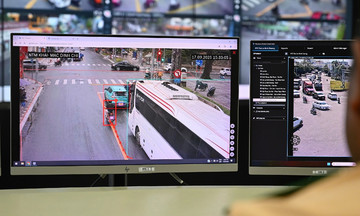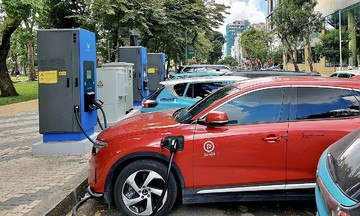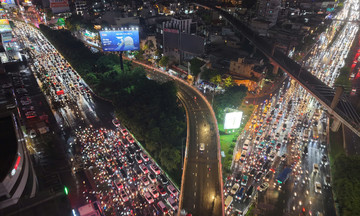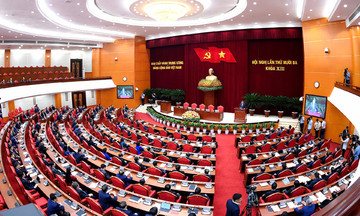This figure was announced by Pham Vuong Bao, Deputy Director of the Public Transport Management Center (Department of Construction), at a conference on August 26th discussing the roadmap and support policies for transitioning the city's buses to electric and green energy.
The plan calls for all new bus routes to use electric buses starting in 2025, with a complete transition by 2030. This means nearly 3,200 electric buses will be needed in the next five years, covering both existing and new routes, at an estimated cost of 13.511 trillion VND.
The city plans to support businesses by offering loans of up to 85% of the investment cost (not exceeding 300 billion VND per project), with a 3% interest rate over seven years. For charging station infrastructure, the city will cover 70% of construction costs and 85% of equipment costs, totaling over 3.6 trillion VND.
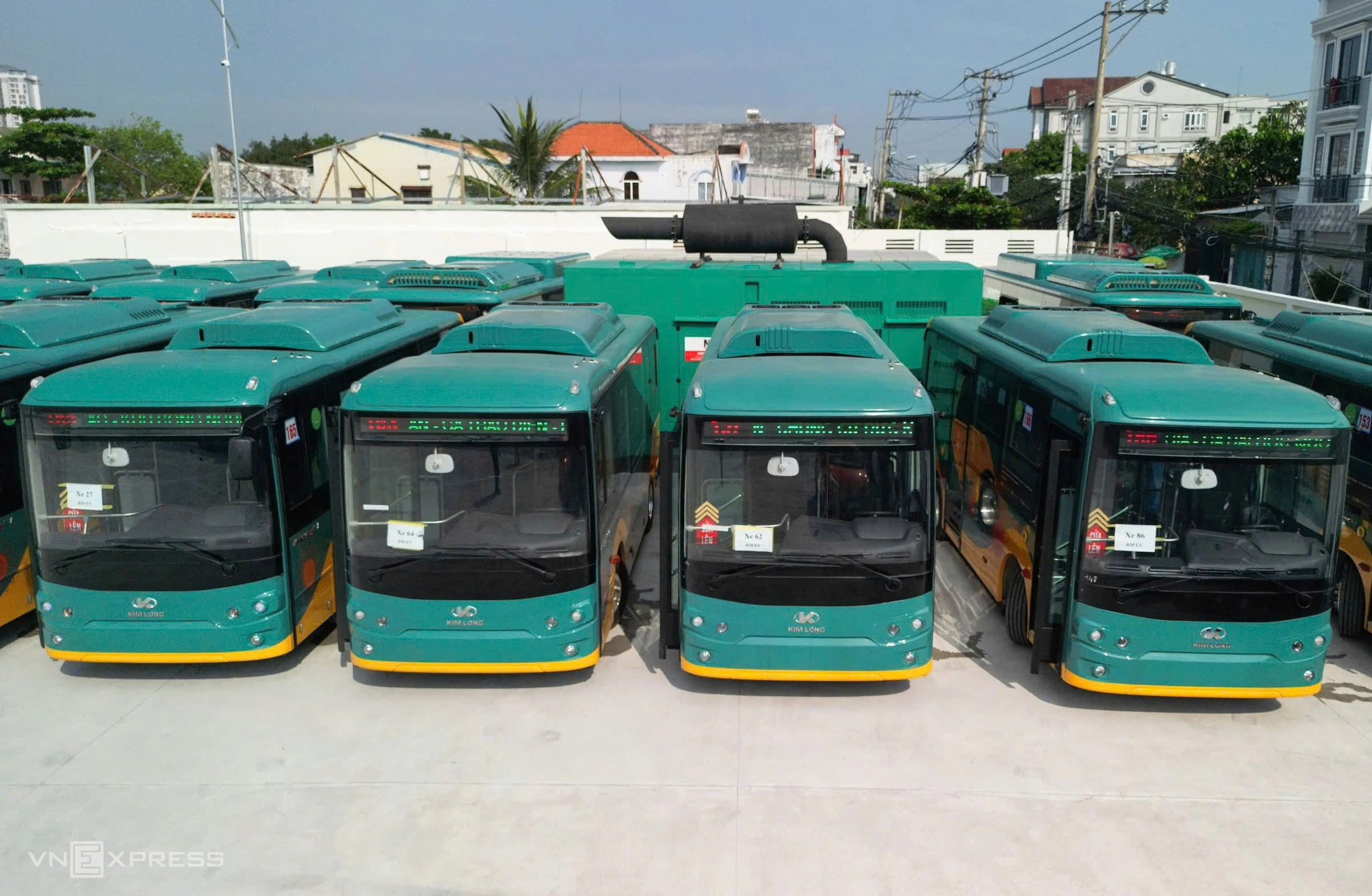 |
Electric buses connect passengers to the Ben Thanh - Suoi Tien Metro line in Ho Chi Minh City. Photo: Quynh Tran |
Electric buses connect passengers to the Ben Thanh - Suoi Tien Metro line in Ho Chi Minh City. Photo: Quynh Tran
Ung Thi Xuan Huong, Chairwoman of the Democracy - Law Consulting Council (Vietnam Fatherland Front Committee of Ho Chi Minh City), believes the transition to electric buses is necessary but the five-year timeframe is too rushed. "This roadmap is 20 years ahead of the government's target, so an extension should be considered," she said, noting that the plan doesn't address how to handle old buses to minimize losses for businesses.
Lawyer Nguyen Van Hau, Deputy Head of the Ho Chi Minh City Bar Association, agrees that the green transition is urgent and aligns with the global trend of reducing air pollution. However, he points out that many policies in the plan only benefit large businesses with sufficient collateral, leaving smaller cooperatives at a disadvantage. The plan also overlooks the cost of battery replacement, which typically accounts for 30-50% of the vehicle's value and arises after 3-7 years, posing a significant financial burden on investors.
Hau suggests exploring flexible models like battery leasing services. Transport businesses would only need to purchase the buses and then pay a monthly battery rental fee, reducing initial investment costs by 40-50%. He also recommends implementing battery swapping stations, allowing buses to change batteries in minutes instead of charging, maintaining operational efficiency and reducing strain on the power grid during peak hours.
 |
Ung Thi Xuan Huong, Chairwoman of the Democracy - Law Consulting Council (Vietnam Fatherland Front Committee of Ho Chi Minh City), at the conference. Photo: Ha Giang |
Ung Thi Xuan Huong, Chairwoman of the Democracy - Law Consulting Council (Vietnam Fatherland Front Committee of Ho Chi Minh City), at the conference. Photo: Ha Giang
Hau also notes that while electric vehicles produce no emissions during operation, they do contribute to pollution throughout their lifecycle, particularly in battery production. Therefore, a solution for handling used batteries is also urgent, especially with the increasing electrification of various vehicle types. "Promoting electric vehicles without a plan for battery disposal will create an environmental debt," he warns.
Bui Hoa An, Deputy Director of the Department of Construction, states that with Ho Chi Minh City's expansion after merging with Binh Duong and Ba Ria - Vung Tau provinces, environmental and traffic issues have become major challenges, demanding the development of green systems. He confirms that the department will consider the feedback and finalize the plan for submission to the City People's Council.
The electric bus transition plan is part of Ho Chi Minh City's vehicle emissions control plan. The second phase will extend to other vehicle types. The city plans to pilot low-emission zones starting in 2026 in the city center, Can Gio, and Con Dao. Gasoline and diesel vehicles not meeting standards will gradually be restricted from these areas, initially applying to commercial motorcycles and cars.
Giang Anh






